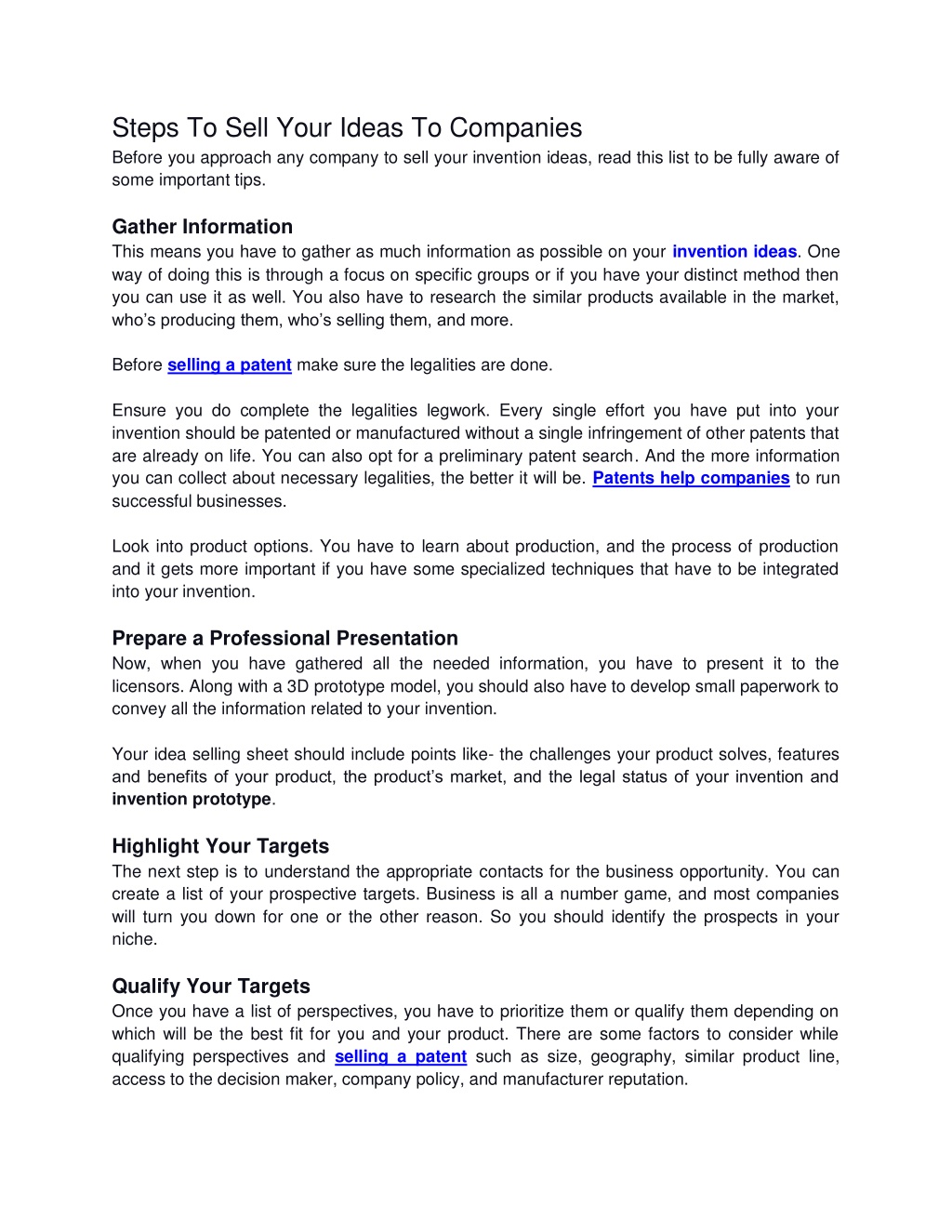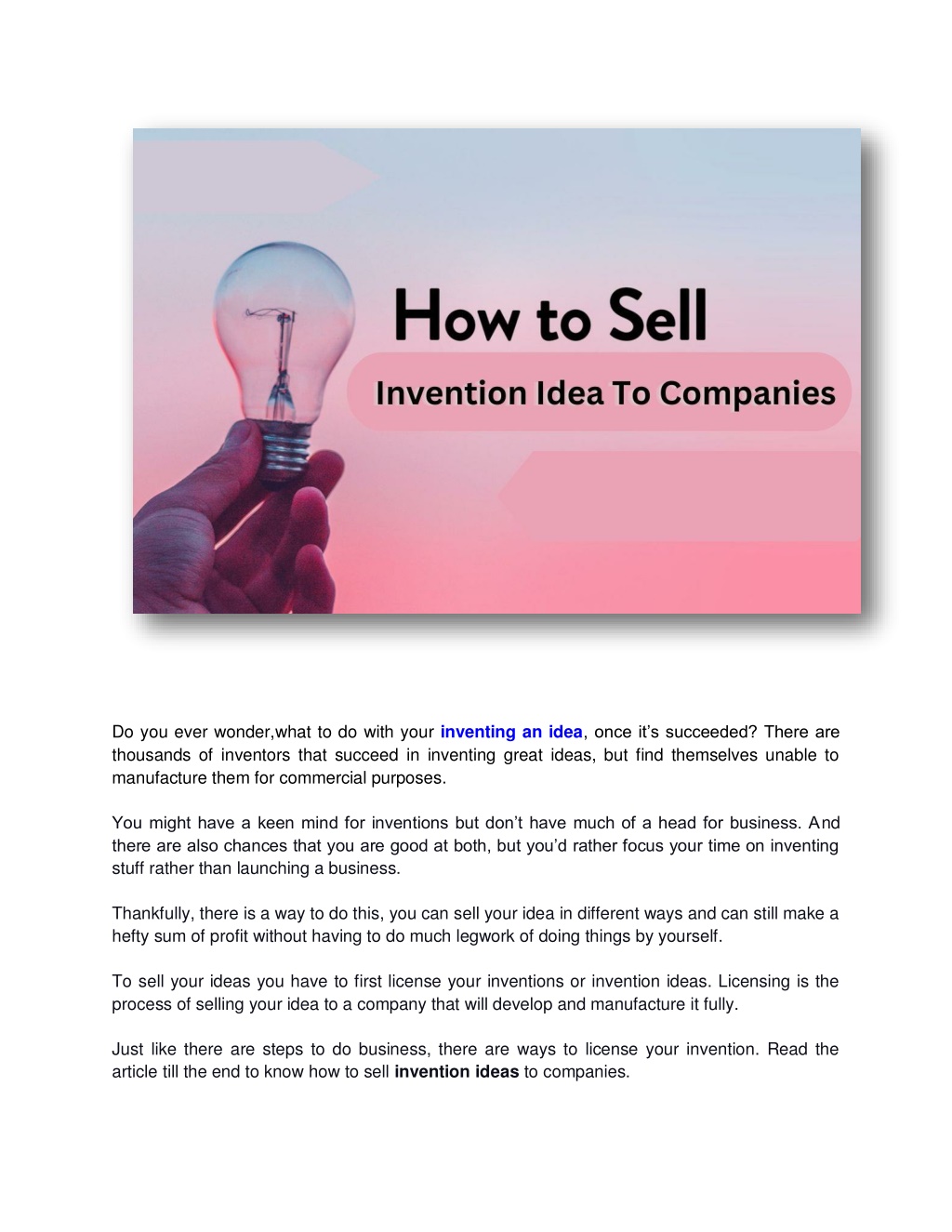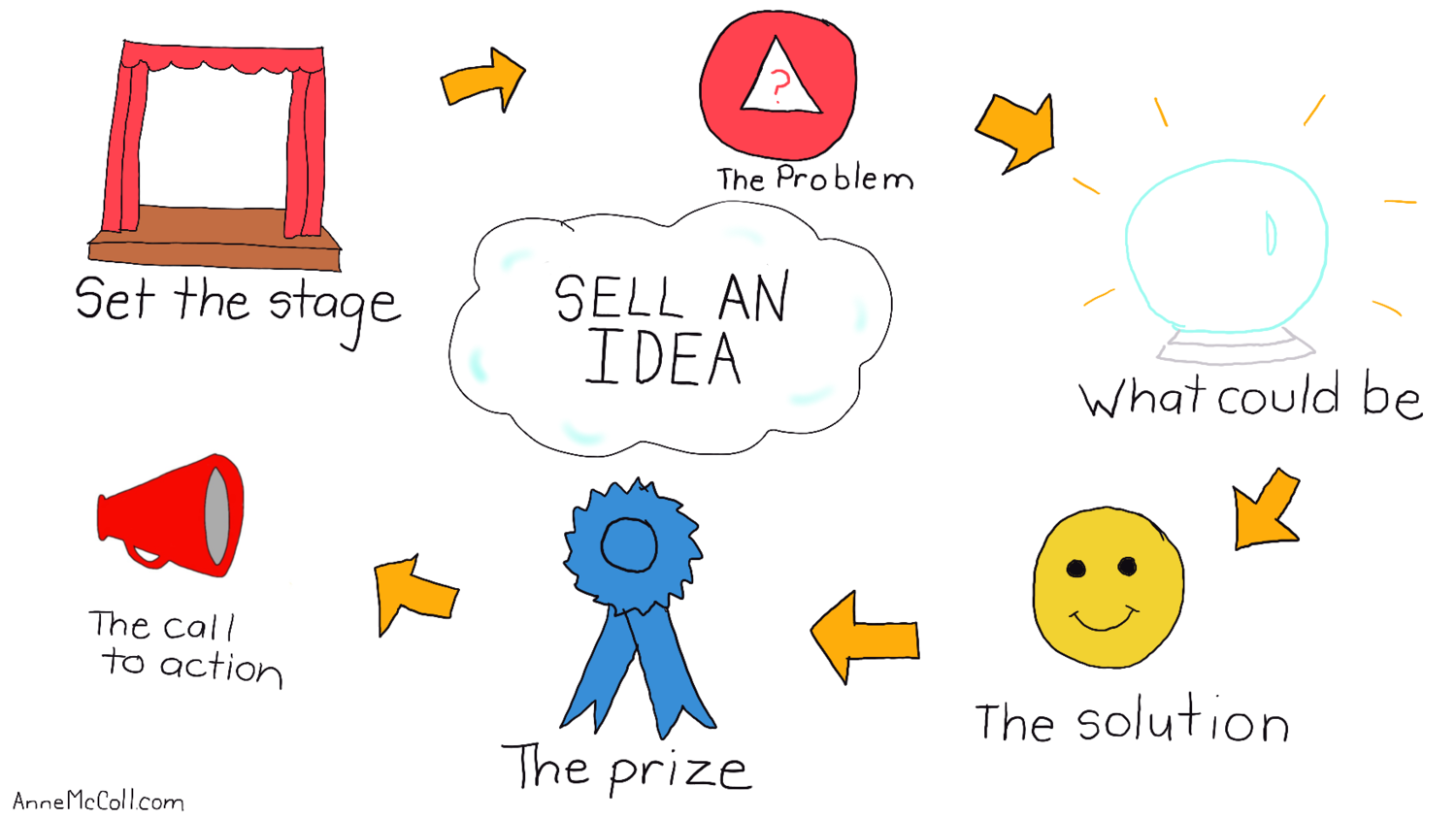How To Sell Your Idea To A Company

Imagine standing before a panel, your heart doing a drum solo against your ribs. In your hands, you hold not just a presentation, but a dream – an idea that could revolutionize a company, streamline a process, or simply make life a little easier for everyone involved. But how do you bridge the gap between your vision and their boardroom?
The path to selling your idea to a company requires careful preparation, persuasive communication, and a deep understanding of the company's needs and priorities. This article explores the key steps involved in presenting and securing buy-in for your innovative concept.
Understanding the Landscape
Before you even think about pitching, do your homework. Research the company inside and out.
What are their current challenges? What are their strategic goals? Understanding their pain points and ambitions is crucial. A Forbes article on corporate innovation highlights the importance of aligning new ideas with existing business strategies.
Identify the Right Audience
Knowing who to approach is half the battle. Target the individuals or departments that would directly benefit from your idea.
Is it a new marketing strategy? Start with the marketing team. Does it improve operational efficiency? Talk to the operations manager. Finding the right champion within the company can significantly increase your chances of success.
Crafting a Compelling Pitch
Your pitch is your moment to shine. Keep it concise, clear, and compelling.
Avoid jargon and focus on the benefits. How does your idea solve a problem, save money, or generate revenue? Quantifiable results speak volumes.
Use storytelling to make your pitch more engaging. Paint a picture of the positive impact your idea will have. Visual aids, such as prototypes or mockups, can also help bring your concept to life.
Addressing Potential Concerns
Be prepared to address concerns and objections. Anticipate potential roadblocks and have well-thought-out answers ready.
Is your idea feasible? Have you considered the costs involved? What are the potential risks and how can they be mitigated? Transparency and preparedness build trust and credibility.
Don't be afraid to acknowledge the limitations of your idea. No idea is perfect, and acknowledging potential downsides demonstrates honesty and a willingness to collaborate.
Building Relationships and Following Up
Selling an idea is rarely a one-time event. Building relationships within the company is essential.
Network with employees, attend company events, and show a genuine interest in their work. This helps you understand the company culture and build rapport with key decision-makers.
After your pitch, follow up promptly and professionally. Thank the team for their time and reiterate your key points. Offer to answer any further questions and provide additional information.
Persistence is key. Don't be discouraged if your idea is initially rejected. Use the feedback to refine your pitch and try again. Thomas Edison famously said, "I have not failed. I've just found 10,000 ways that won't work."
Embracing the Entrepreneurial Spirit
Whether you're an employee or an external innovator, selling an idea to a company requires an entrepreneurial spirit. Believe in your vision, be prepared to work hard, and never give up on your dream.
The world is full of problems waiting to be solved.
"The best way to predict the future is to create it,"as Peter Drucker famously said. Your idea could be the solution they've been looking for.
So, take a deep breath, polish your presentation, and step into that boardroom with confidence. Your idea has the potential to make a real difference.


















